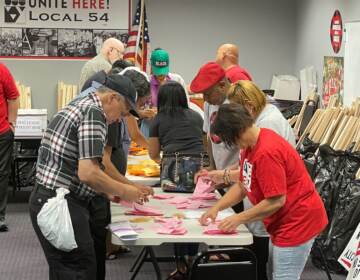Casino workers struggle as Atlantic City sees last year’s gains fade away
While casinos and local unions formulate guidelines for reopening, city government fights off a referendum and out-of-work residents line up for food.
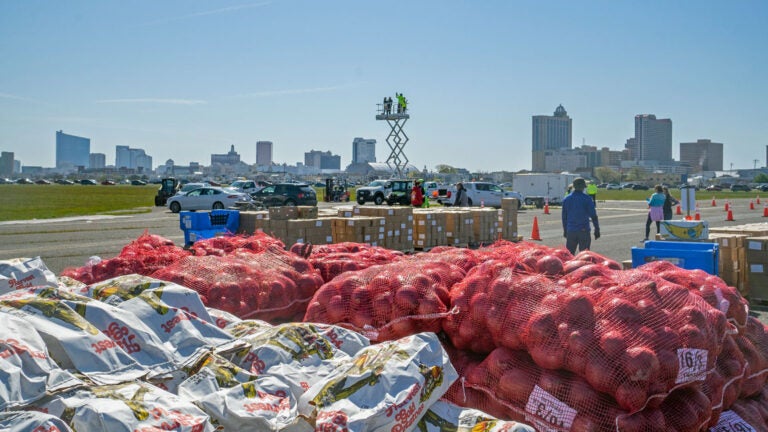
Community FoodBank of New Jersey and local unions organized an emergency distribution of food at Bader Field, Atlantic City, May 14, 2020. (Andrew S. Lewis)
This article originally appeared on NJ Spotlight.
___
On Thursday morning, hundreds of cars began lining up outside of Atlantic City’s Bader Field for an emergency food distribution, organized by the Community FoodBank of New Jersey and local unions. One by one, unemployed casino workers and city residents received boxes of canned vegetables, peaches, spaghetti and meatballs, bags of onions, and fruit. It was a display of solidarity — the volunteers there to distribute food were themselves out-of-work casino employees.
“We went from one of our best years in a long time to nothing,” Barry Flemming, president of the local entertainment technicians union, said as he loaded open trunks with 10-pounds sacks of potatoes. “I’m hurting, too.”
Marshall Sweeten, an electrician who has worked in Atlantic City since 1987, struggled to find a comparable crisis to the COVID-19 pandemic. “This is more serious than Hurricane Sandy,” he said. “People were still working through that — now, they’re not.”
Thursday’s event was just one of many planned for the Atlantic City region’s struggling workers and residents. On Monday, the Casino Reinvestment Development Authority (CRDA) entered into a grant agreement with CFBNJ to provide $300,000 for sustained food distribution throughout May and June, while private interests have promised to match that amount. “Let me put it in perspective for you,” CFBNJ president and CEO Carlos Rodriguez said. “Last fiscal year, we distributed enough food for over 50 million meals — by the beginning of April, we had already done that.”
With the line of cars snaking around the cracked runway of the now-defunct municipal airport, Rodriguez and his staff decided to begin the distribution early. For the next four hours, 3,958 emergency meal kits and 43,600 pounds of fresh produce were given to nearly 2,000 families.
New Jersey’s most vulnerable Shore town
Since Gov. Murphy’s lockdown order in March, Atlantic City’s nine casinos have been shuttered, leaving some 27,000 employees — thousands of whom live in the city — out of work. No Jersey Shore town is more vulnerable than Atlantic City, which has the highest poverty rate in the state — 37.7 %. In a March report, the Brookings Institute ranked the city third in the nation among metropolitan areas with jobs in industries at high risk from the pandemic.
The shutdown of the city’s casinos as the 2020 summer season dawns is particularly bitter, given the rare moments of good news lately. Last year, the casinos’ operating profits rose by 5.8% and their employment numbers grew by 5,749 positions, compared to 2018. Additionally, in January, Moody’s slightly boosted Atlantic City’s credit rating — a bump attributed to the city’s efforts at diversifying its economy beyond gaming, like Stockton University’s planned expansion.
These bright spots came as Atlantic City was just beginning to emerge from one of the most turbulent periods in its 166-year history. In 2016, the city was spiraling into financial disaster, leading former Gov. Chris Christie to initiate a state takeover that has continued under Gov. Murphy — a move that has helped stabilize the city’s economy. But last year, then-mayor Frank Gilliam became the latest figure in a long succession of corrupt local officials when he resigned after admitting to stealing $87,000 from a children’s basketball charity.
Jim Johnson, whom Murphy appointed as special counsel for Atlantic City’s transition under the ongoing state control, said the city’s situation was dire when he began work in 2018. (Johnson left the role in 2019.) “When we came in, the city’s finances were out of balance from a fiscal perspective,” he said. “But in terms of investing in people, investing in the children, and investing in all sorts of infrastructure, it was sorely lacking.”
In October, Gilliam was replaced by longtime city councilman Marty Small Sr. But as soon as Small took office, he was confronted with a referendum — backed by Resorts Casino Hotel owner Morris Baily and Bob McDevitt, the president of the city’s casino workers’ union, Unite Here Local 54 — that, if passed, would gut much of what remains of the city’s local power by adopting a council-manager form of government, rather than mayor-council.
Mail-in-only voting ended last Tuesday, and by Thursday afternoon the referendum had been roundly defeated. “NO MEANS NO,” Small wrote triumphantly on Instagram. “THIS IS OUR CITY.”
Many different reopening plans emerge
But there are serious questions about what kind of city will remain in the wake of the COVID-19 pandemic. “This may be among the worst challenges Atlantic City has faced within the last 50 or 60 years,” Johnson said. “It looks worse than 2008.”
Paramount among city officials is getting the casinos back open, a task that will not be easy but is nonetheless underway. Last week, Unite Here Local 54 released health and sanitation guidelines that ask casinos to include testing for employees, as well as provide personal protection equipment (PPE) and temperature screening for workers and guests, and additional staff to enforce social-distancing guidelines.
Some of the casinos have also released reopening guidelines. On Tuesday, MGM, which owns one of the city’s most prominent casinos, the Borgata, published a “Seven-Point Safety Plan” that acting CEO and president Bill Hornbuckle said, “addresses everything from employee screening, masks, cleaning and air quality, to digital innovations that put you in control of your check-in experience.” Hornbuckle went on to say, “MGM Resorts properties will not look the way they used to for a while, and that’s not only okay, it’s critically important.”
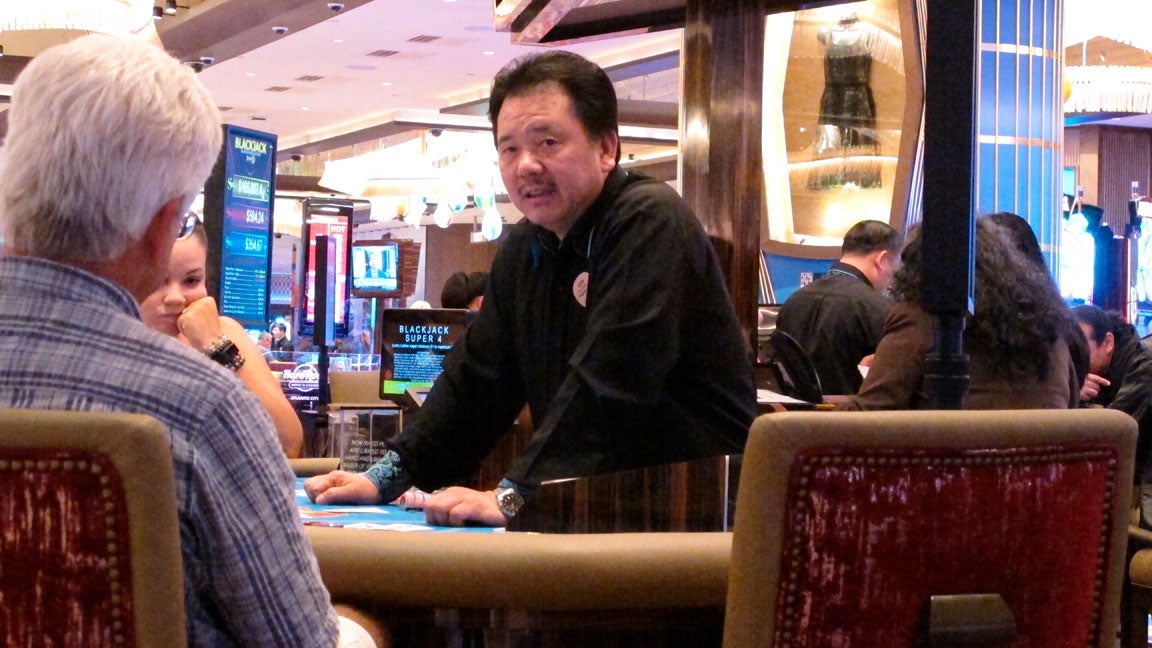
(AP Photo/Wayne Parry)
But while executives hash out reopening plans, Ben Albert, organizing and staff director for Unite Here, said no one has consulted the workers — who will be most at risk when casino doors across the city open again. “They need to involve frontline workers in those conversations and those decisions,” he said. “Because who knows best how to do their jobs and how to do them safely than the workers?” (Albert did add that the Hard Rock casino has “stepped up some to help out their employees,” which included $100 grocery cards for employees.)
Last week, most of Atlantic City’s casinos were taking room reservations beginning June 1, but that has changed for some — Harrah’s and Caesars, for example, are no longer accepting bookings until June 7.
While the opening date may change again, depending on Murphy’s orders, Jay McKnight, who has worked as a bartender at Harrah’s for 13 years, is expecting his return to resemble little of what it once was. “Yeah, we’ll go back to work and, yeah, we’ll get our hourly wage, but I gotta be honest, there’s probably going to be quite a pay cut,” McKnight said, referring to work hours and tips. “If you’re in a bar and there needs to be six feet between everyone, you just took out 70 percent of your seats.”
A question of enough help for workers
Earlier this month legislation was introduced in the state Assembly and Senate that calls for tax breaks and fee waivers for casino owners — and even the horse racing industry — along with dedicated funding to the CRDA for a year-long marketing campaign. There is little mention of added support for employees beyond requiring the casinos to invest a portion of money saved from the breaks and waivers to “promptly rehire and employ former employees and new applicants.”
“The casino license is a pretty valuable thing, and the need for state support is pretty important to the casinos right now,” Johnson said. “And this, in my mind, is the time for the state to strike a sensible bargain that preserves business and supports people.” He continued: “How we emerge from this — and we will emerge — will set a pattern. If we simply reset the same pattern, we doom future generations to live through the same traumas we are living through today.”
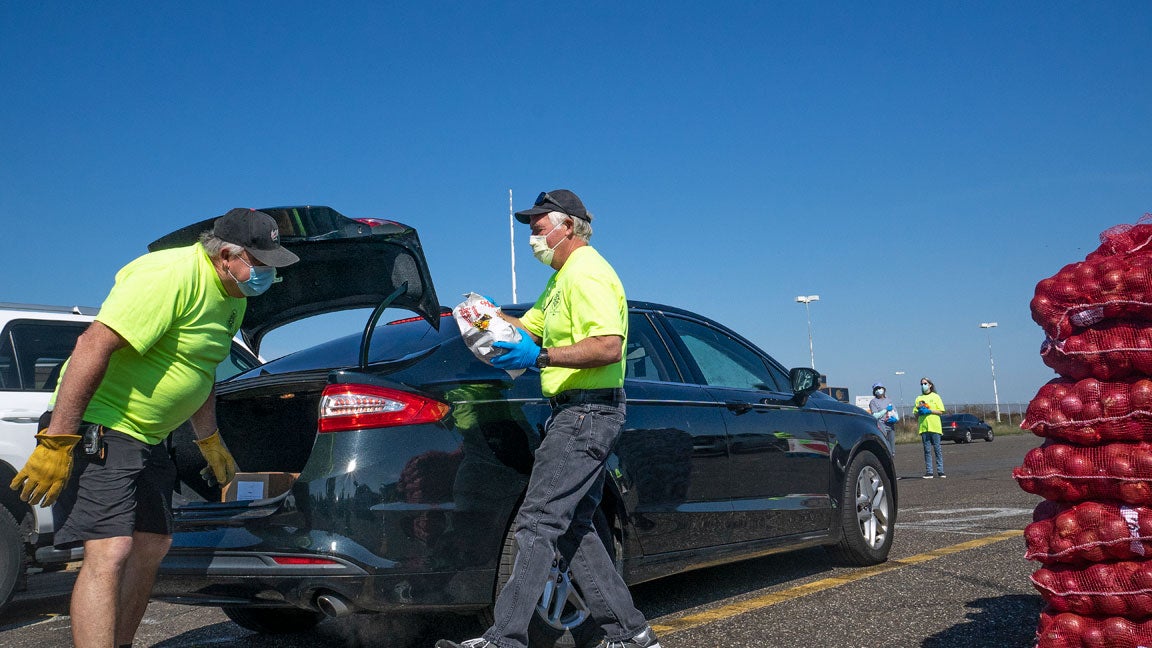
As an example of moving forward in a better direction, with Atlantic City’s vulnerable casino workers and residents in mind, Johnson pointed to the CRDA’s plans to build a supermarket, as well as its support of the expansion of an Atlantic Care medical facility. “These are investments in people,” he said. “If you look around the country, and around the world, where cities have turned around from real setbacks, the most sensible investments are investments in human capital.”
McKnight, the Harrah’s bartender, also echoed Albert and Johnson’s concerns about the casinos not including their workers in conversations about what Atlantic City’s post-pandemic landscape may look like. “They shut their doors and turned off their phones,” he said. “Except for these videos that are coming from the CEO, they just left workers to fend for themselves. They didn’t give out information on how to file for unemployment — you have people who have worked at Harrah’s for thirty-some years; they have no idea.” (An email request for comment from Harrah’s was not answered.)
Both McKnight and Sweeten, the union electrician, said they didn’t have trouble receiving their unemployment benefits through the state, but did describe others who have yet to see any money.
“I’m one of the lucky ones,” McKnight said. “But one of my very close friends (who is also a casino worker) still hasn’t gotten any money — he’s taking out cash advances on credit cards and doing what he’s gotta do to keep his head above water.”
“I feel sorry for the ones still waiting,” said Sweeten. “The bills don’t wait — what are you supposed to do until things get up and running again?”
Sweeten told his story while hustling back and forth between his assigned pallet of onions, telling the drivers of the cars he was stocking up to hang in there. He said he’d be able to hold over for a few more months, but after that, when his health insurance runs out, he couldn’t rule out looking for work elsewhere by summer’s end.
McKnight had echoed Sweeten. “I was talking about this with my fiancée yesterday, because you just really don’t know what’s happening” he said. “I mean, at this point, all the cards are on the table.”
WHYY is your source for fact-based, in-depth journalism and information. As a nonprofit organization, we rely on financial support from readers like you. Please give today.


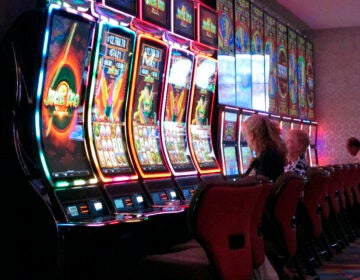
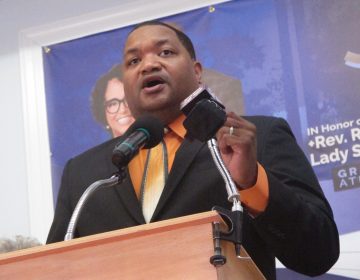

![CoronavirusPandemic_1024x512[1]](https://whyy.org/wp-content/uploads/2020/03/CoronavirusPandemic_1024x5121-300x150.jpg)
